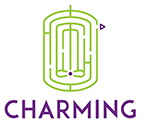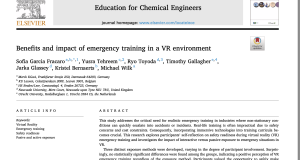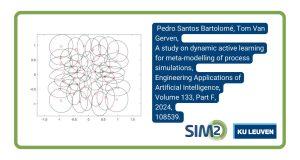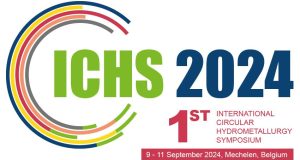On November 18th, 2022, Silvia Fornós obtained her PhD degree for her research carried out under the supervision of Prof. Daniel Cermak-Sassenrath at IT University of Copenhagen, and summarised in her thesis titled “Students Making Games as a Learning Strategy in Chemical Engineering”. A challenging interdisciplinary topic combining game making /game jams with process design and engineering education.
The PhD research is part of the H2020-MSCA-ETN CHARMING project, the EU Training Network for Chemical Engineering Immersive Learning. Congratulations, Silvia!
The summary of the PhD research along with a list of Silvia’s publications are available below.
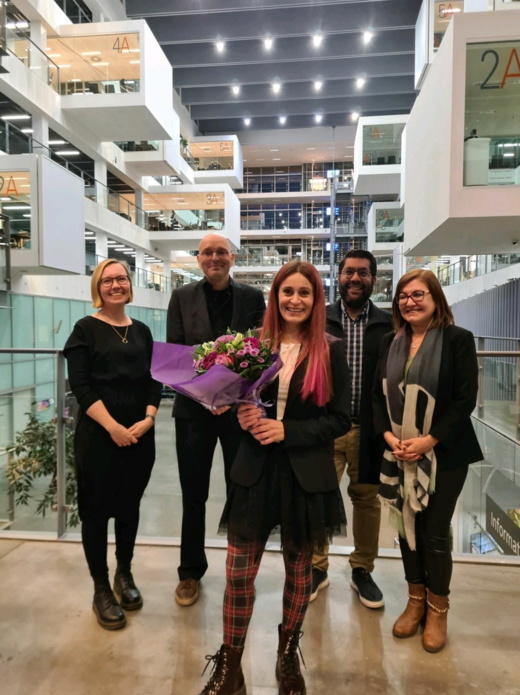
Abstract
Making games is a common practice to learn game design or programming in higher education. However, here it is hypothesised that beyond game-related or programming skills, the process of making games represents a learning approach that can extend curriculum-based education in different subject areas. Drawing on that hypothesis, the learning activity proposed in this study challenges students to design games through which their expertise in chemical engineering is communicated. Learners practice how to deal with a challenge, which is particularly relevant to thinking critically and proposing innovative solutions in STEM (Science, Technology, Engineering, and Mathematics) disciplines.
The aim of this study is twofold. Firstly, the investigation is centred on the main pillars required to integrate a game creation event into the chemical engineering curriculum, i.e. pedagogical background, tools, and context. Secondly, this research explores the implications of students making games in an engineering course, mainly focused on cognitive, motivational, and social outcomes.
In pre-school education, infants play with visual elements, like building blocks, to create and learn during the creation process. Infants observe those blocks to reflect on what can be created and how the blocks can be combined. Similarly, this research proposes a visual game editor where young adults can learn from the game design process. Students take on the role of game designers and learn by exploring and experimenting to create a game autonomously, instead of following instructions.
The Game Editor for Learning (G.E.L.) is a custom-made editing tool for the present study, which has been inspired by 2D drag-and-drop platform game level editors. In addition to the pre-made game items to create levels, the G.E.L. includes a feature to upload 2D pictures, through which new game items can be skinned. With that feature, the editor allows non-game designers to integrate engineering-related content in their creations and, most importantly, to reflect on how the content should be integrated with the different game elements and mechanics, as part of the learning process.
An additional contribution of my research is the development of a CHEM Jam, an event based on the idea of game jams, which are collaborative events where participants try to create games in a relatively short period of time. These events attract participants and engage them cognitively and socially around the creation process. As game jams are fundamentally game-like events to create games, they have the added advantage that they engage participants playfully.
Overall, this interdisciplinary investigation is set at the crossroads of game studies, educational science, and engineering education. Particularly educational practitioners in engineering disciplines may find in this book an inspirational source to integrate a learner-centred activity, with game making at its core, in their lectures or teaching.
List of peer-reviewed publications in scientific journals and conference proceedings:
- S. Fornós. C. Udeozor, J. Glassey, D. Cermak-Sassenrath, The CHEM Jam – how to integrate a game creation event in curriculum-based engineering education, Education of Chemical Engineers, 2022, DOI:10.1016/j.ece.2022.04.001, download
- S. Fornós, Game Making as a Learning Strategy for Chemical Engineering, CHI Play ’20, 2020, DOI:10.1145/3383668.3419888, download
- S. Fornós, Super Mario Maker 2 as a Tool for Educational Game Design, 14th European Conference on Game-Based Learning (ECGBL), 2020, 801-804, download
- S. Fornós, D. Cermak-Sassenrath, Towards an Assessment Framework for Learner-Created Game Levels in Chemical Engineering Education, 15th European Conference on Game Based Learning (ECGBL), 2021, DOI:10.34190/GBL.21.017, download
